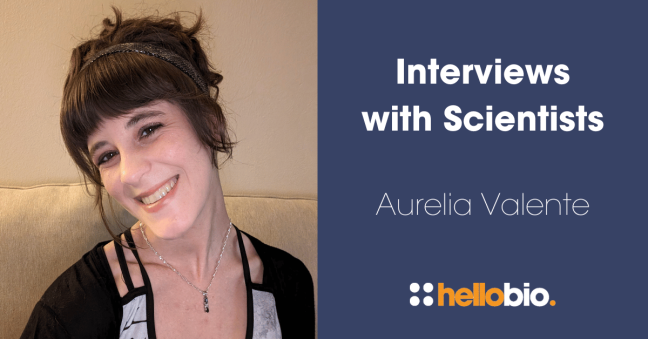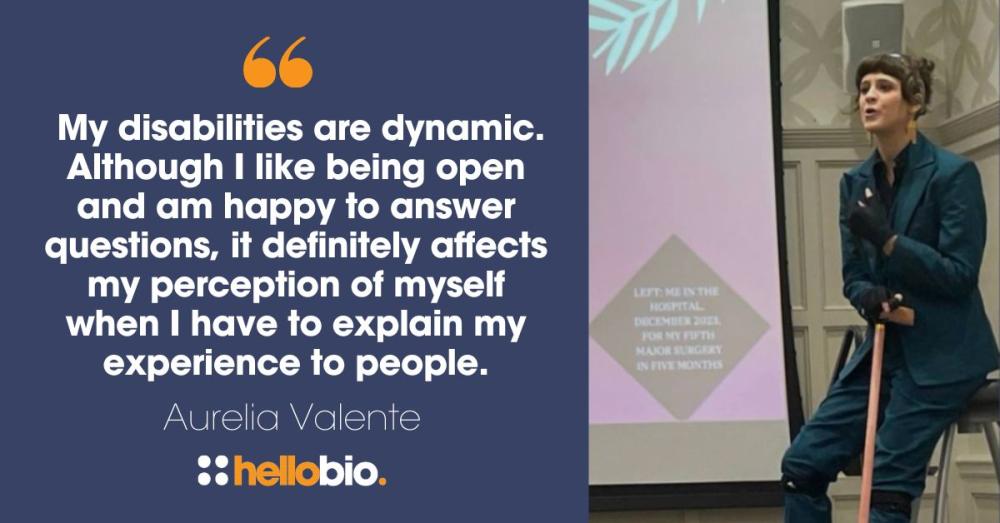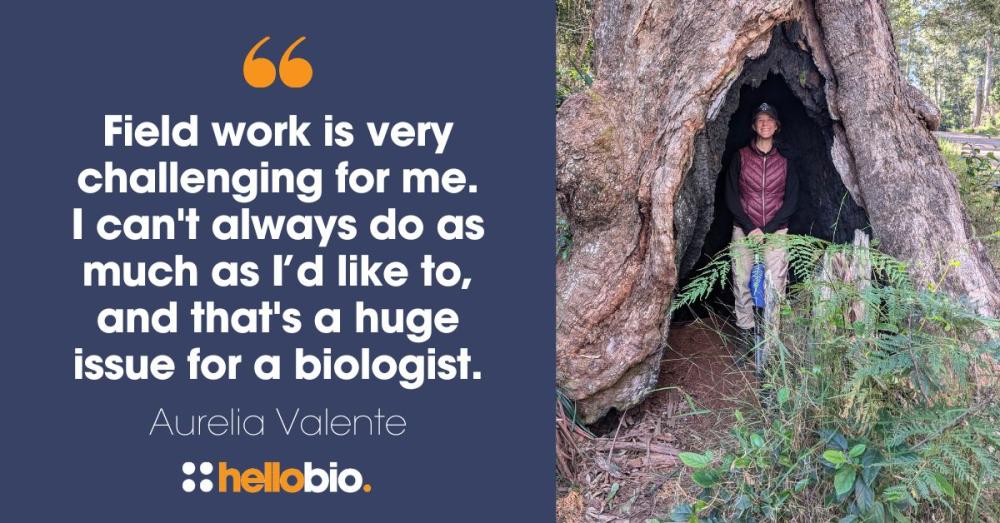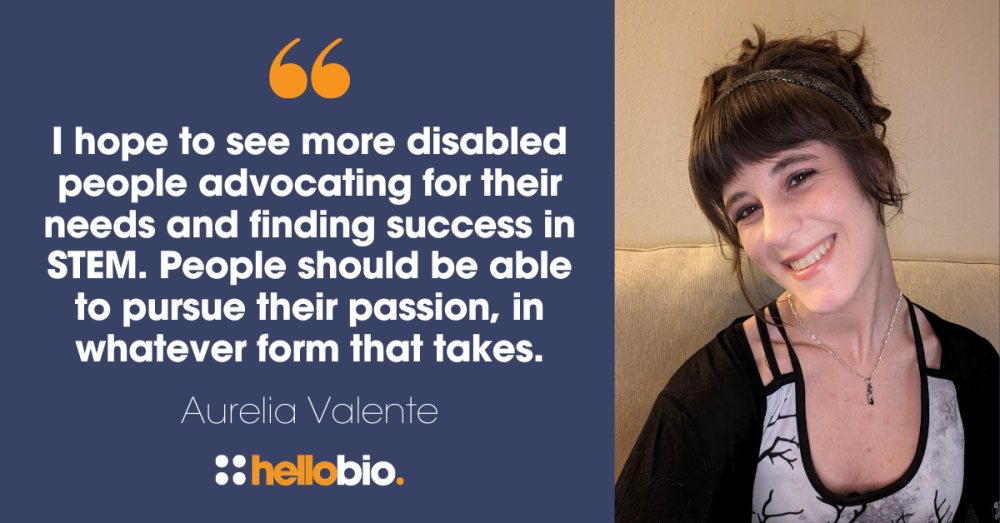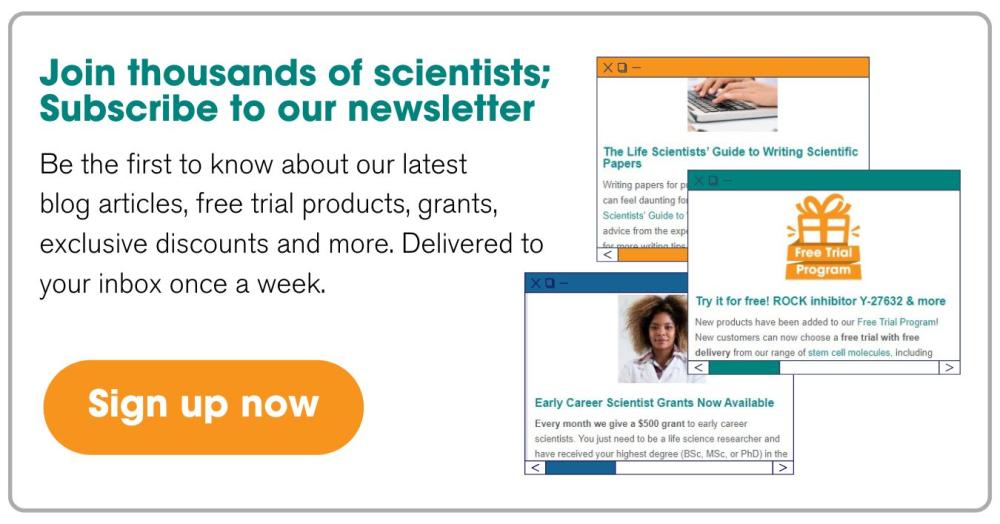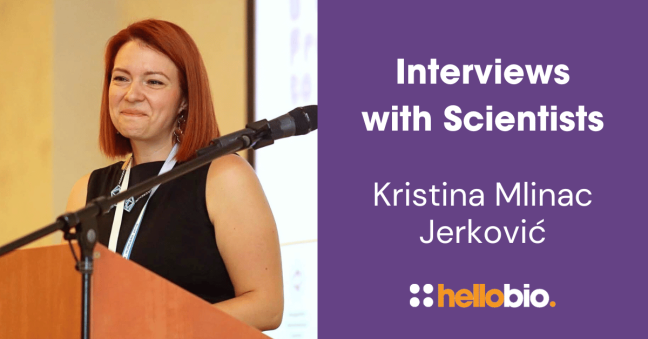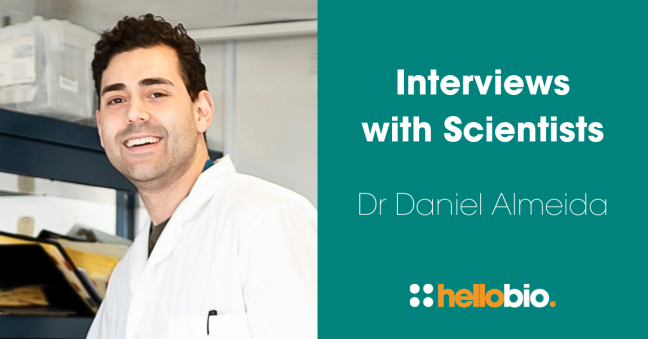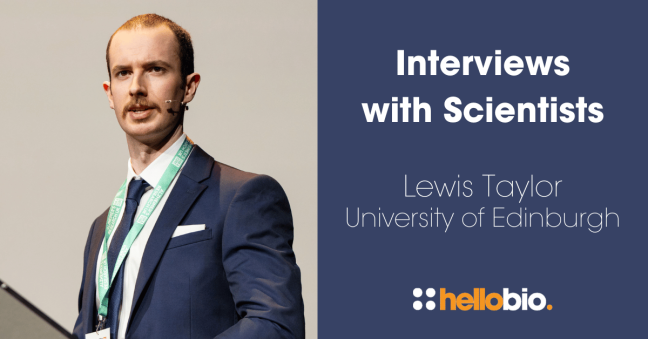Interviews with Scientists: Aurelia Valente
It’s time for another interview with an inspiring life scientist, and this week we were delighted to speak to PhD student Aurelia Valente of the University of New Mexico, USA!
Aurelia is a comparative behavioral biologist who is currently working as a Graduate Teaching Assistant at UNM. She is a passionate advocate for people with disabilities, and speaks publicly about her own disabilities and the challenges they bring to her daily life and research work.
We wanted to find out more about her career so far, her current areas of study, and her thoughts on accessibility and inclusion for disabled people working in science research. In this inspiring interview she also tells us about her disabled role models in STEM, and her hopes and plans for the future.
Hi Aurelia! Please can you tell us a little bit about your background as a scientist?
My background as a scientist is a little complicated! I have wanted to be a biologist since I saw a diagram of the cnidarian life cycle at age 12 and became absolutely hooked. Biology is a lot of organized chaos, and I think that's why it appeals to me. My fascination with nature has rarely wavered, even though my interests change as I learn and grow. My primary area of study is behavior, and I would label myself as a comparative behavioral biologist.
After high school, I pursued a BS in Integrative Biology from the University of Colorado Denver. I graduated from the program in three years, with Magna Cum Laude honors. During this time, I worked in a disturbance ecology lab, where I analyzed carbon and nitrogen content of soil samples in areas heavily affected by various climate impacts. I also worked in a behavioral biology lab, where I received grants to study escape behaviors in stalk-eyed flies. Additionally, I worked as a teaching assistant in a couple of different upper-division biology courses and had an assortment of other jobs to help me through school.
After I graduated, I wanted to get my PhD, but COVID made things difficult so I ended up taking an internship in Peru helping with biodiversity research. Unfortunately, I became sick and ended up leaving the internship. The experience made me doubt my ability to be a scientist, so I began substitute teaching. I got a job teaching general biology and worked with a large population of low-income students, many of whom had accommodations. I tried to design a curriculum that allowed my students to build various skills while learning in ways that worked for them. Much of my curriculum included "unit menus", interactive lectures, labs, and projects that accounted for a variety of needs and learning styles. It was really painful to see how many kids had been ignored because they had accommodations. It wasn't perfect, but I did what I could as a brand new, overloaded, post-COVID teacher.
During this time I started a master's degree with Miami University's Project Dragonfly Global Field Program. My MA is focused on adaptability and accessibility in biological communication, education, and research. After a couple of years I started experiencing some challenges due to my own needs as a disabled teacher and ended up leaving this position to receive several surgeries. I decided I really missed research, and was finally ready to pursue my PhD, so I applied for a program at UNM.
I have completed almost all of the remaining classes for my MA and gave a talk at Miami University on disability inclusion in STEM. I also participated in the "Young Voices in Science" communication program through the Hubbard Brook Research Foundation. I received scholarships to spend this summer working in Montana and Australia, for my PhD and MA programs, respectively. My goal is to ultimately build a solid portfolio of experience and qualifications, so that I can have a range of options as I move forward with my academic career.
What is the focus of your PhD research?
I am focusing on the underlying mechanisms and ecological and evolutionary applications of behavioral spectra. In other words, I am comparing behavioral mechanisms within and across species and attempting to understand how variation in behavior might contribute to various biological phenomena. I absolutely love behavioral biology, and there is so much to study there. But I became interested because I stumbled across a paper on autistic bees and started to think deeper about what humans consider "neurodivergence" in other species. I was fascinated, and my advisors have been really supportive of my research interests. I began investigating some of this in Montana this summer, where I was studying the potential for variation in spider personalities. We were hoping to see if such variation in behavioral characteristics can contribute to an individual's "fitness landscape," which may then contribute to larger group shifts.
Behavioral ecology often generalizes a species' behavior, but I believe that there is a lot we can learn from looking at the natural behavioral spectra that can occur within and across species. This is a fairly new area of study, and there are several researchers investigating things like invertebrate personality traits, which has definitely inspired my own research. I am primarily interested in looking at the evolutionary and ecological implications of neurodivergent conditions like autism across species and have already gotten a small grant from the Animal Behavior Society to begin investigating these phenomena.
You are an advocate for disability awareness and inclusion. Can you tell us a little about your own disabilities?
I have several conditions that affect me as a disabled individual, many of which I did not know about until the past few years. I have a genetic condition called hypermobile Ehlers-Danlos Syndrome (hEDS). It is a connective tissue disease that is genetic and often degenerative. EDS is a family of collagen disorders. In the simplest terms, it means that my connective tissue is far too stretchy, and that can affect everything in my body, from my joints to my nerves to my digestive tract. I often experience subluxations and dislocations and have a higher risk of tissue damage. Since it is genetic, I have struggled with many of the symptoms for my entire life. However, the severity increased as I got older and I was finally diagnosed last year. Around the same time as I was told I would need four invasive hip reconstructions and a reconstructive jaw surgery. The journey to recovery was a long, hard road. While I hope that I don't have to go through anything like that again for a long while, it is impossible to know for sure. I spent most of last year trying to learn everything I could about my condition, and all of the comorbidities that come with it (aka other conditions that we didn't know I had but have been affecting me more severely in recent years).
Along with hEDS, I have a condition called postural tachycardia syndrome (POTS), which can make me faint or become ill quite suddenly. It's very common with all of the types of EDS, and I also suffer from migraines, and a variety of other medical conditions related to my condition. My condition does, however, make me look younger than I really am. As a teacher, I was frequently mistaken for one of my teenagers. I prefer to tell people I have a witch's curse - I am cursed with external youth, at the expense of my crumbling insides.
Since my diagnoses, I have had access to a lot more information and it's made a huge difference in my ability to continue on with my career. That said, there are a lot of challenges that come along with it. My disabilities are also dynamic, which means my needs and abilities change from day to day. I use mobility aids like a cane, and I have a permanent disability placard. I have definitely experienced harassment for those things, and it's likely because I'm young. I also get tons of questions and comments, and although I like being open and am always happy to answer questions, it definitely affects my perception of myself when I have to explain my experience to people.
How does your disability affect your research work as a scientist?
As a teacher, I started experiencing difficulties because of the strict routine and expectations associated with that job. I loved what I was doing, but teachers have a ton of pressure on them to be everything for their kids. Higher education isn't necessarily any easier, but I have more choices in building my own schedule, and a stronger support system from the university.
Field work is very challenging for me, and something I am working to figure out. It can be dangerous to have someone out in the field if they need medical care. I can't always do as much in the field as I’d like to, and that's a huge issue for a biologist. Research is also very productivity-oriented, and there’s a lot of pressure to constantly produce results. It can be challenging to ask for time to rest and recover, especially if you are operating in a limited time window, or with limited funding. The system isn't really built for people like me. It's definitely challenging trying to balance those things, and it’s something that I’m still figuring out. I have to take it one situation at a time, and not let my own insecurities get the better of me, as I am trying to advocate for my needs. Despite my struggles, I am capable of so much. I am extremely determined and will always continue to find a way forward.
What challenges do you face that colleagues and peers are sometimes unaware of?
I often struggle with executive dysfunction, which makes my anxiety a lot worse. It isn't always easy to get things like medications filled, because the American healthcare system can create a lot of barriers. I also go back and forth on how social I am, have sensory issues, and sometimes experience verbal shutdowns that can be really frustrating for me.
My physical pain changes, which is incredibly challenging. I sometimes struggle with my hands, or my knees, and the source of pain can change from day to day. I have yet to pop a joint back into place in front of a colleague, but that is definitely uncomfortable to watch. Pain can be scary for people, because we don't always know what is causing it. A random sharp pain could either be completely normal, or an emergency, and you might not know which. I had hip problems for 8 years before we found out I needed surgery, and by that point, the tissue was so shredded that one hip was permanently dislocated. When I have a severe POTS flare, I can faint suddenly, and in severe situations I can appear catatonic. It can be hard to communicate what is happening, or what I need in those moments. I have medications and strategies to help manage it but it's not perfect. It definitely freaks people out, even though we can usually remedy the situation with salt, water, and protein. Thankfully, that level of severity is extremely rare.
I hate using my accommodations and although I know I need them, I sometimes feel like I shouldn't have to. I think that comes from spending a lot of my life being told that what I'm experiencing is no big deal, and that I should be able to manage it fine on my own. Even though those things aren't true, it can take a really long time to let go of that mindset, especially because there are still a lot of people who still judge and harass me for being disabled. And along with all this comes a ton of imposter syndrome. Sometimes I feel smart and capable, but I often feel like I don't belong here. It can be really hard to ignore the voices in my head that tell me I should not even be trying to get my PhD or go into science. But I have made it this far, so sometimes I just need a reminder.
Do you have any disabled mentors or role models in science that you look up to?
Disabled people are unique, so all of our challenges are going to be different. I really admire Richard Mankin, who studies insect communication. He has a muscle disease and uses forearm crutches to do research out in the field. I'd love to know what else he does to make field research manageable. There are a lot of historical figures who have either physical or neurological disabilities, and I admire all of them. I do wish I had access to more personal connections with disabled mentors and role models. I am a part of the NSF INCLUDES National Network which helps me keep up to date with what is happening with disabilities in science. I also try to make connections with people I admire, and I try to contribute to awareness and advocacy in any way I can.
What are your hopes for the future of inclusion with regard to disabled scientists and researchers?
My hope is that we see a lot more disabled people advocating for their needs, getting accommodations, and finding success in STEM fields. I would love to see so much more diversity in the sciences and move away from biases that affect funding and employment. People should be able to pursue their passion, in whatever form that takes. It might be idealistic, but I think it's what the world needs.
What are your long-term goals as a scientist? Where do you see yourself in 10 years?
My long-term goals are to build up my credentials and experience and be able to find a position that both values me and is willing to accommodate my needs. I would love to be a professor, and that is what I am ultimately working toward. But I also recognize that life takes many unexpected turns... otherwise, I wouldn't be where I am now! So, I am just going to keep learning and try to be flexibly ambitious. I have to keep in mind that my condition could change, so I am going to do what I can to stay on top of my medical stuff and have backup plans in case I need to do something different.
Even though I would love to be a professor, there is always the possibility I might have to take a remote job or something someday, so I have to be realistic in what type of work I can do in the future. As much as I'd love to say I could do field or lab research forever, that just isn't realistic. I have tons of writing experience so that gives me some options, and I am also doing community work to keep myself involved in the world outside of higher education. My life could take a lot of directions, but ultimately I just want to find something that allows me to keep pursuing my passion for biology, even with my disabilities.
_________________________________________________
Thanks so much for speaking to us Aurelia!
Connect with Aurelia:
- LinkedIn: Aurelia Valente
_________________________________________________
If you enjoyed this article, why not check out the other resources available on our blog. We are passionate about supporting life scientists including early career life scientists and PhD students - with really low-priced reagents, antibodies and biochemicals, early career scientist grants, and resources to help with both personal and professional development. We know how tough it is - so we hope you find these helpful!
More General Support for Life Scientists
For advice on wellbeing, dissertations, presenting at conferences, wellbeing, PhD support, networking and lots more, we have a huge range of articles to help - just click below:
Save up to 50% on our high purity reagents...
When you get to the stage of planning your experiments, don't forget that we offer a range of low-cost, high-purity agonists, antagonists, inhibitors, activators, antibodies and fluorescent tools (yes - they really are around half the price of other suppliers!) You can use our Quick Multi-Search Tool to search for lots of products in one go, and the range includes:
- Enzyme inhibitors and activators
- Chemogenetic ligands
- Ion channel modulators
- GPCR & ionotropic receptor ligands
- Cell biology reagents & biochemicals
Technical resources
Try our Molarity Calculator: a quick and easy way to calculate the mass, volume or concentration required for making a solution.
Try our Dilution Calculator: an easy way to work out how to dilute stock solutions of known concentrations
We also offer a comprehensive range of technical resources including antibody protocols and methods, product guides and mini-reviews:
And finally, don't forget to check back in with our blog regularly for our latest articles. If there’s something you’d love to contribute to the community, whether that’s an interview or article, drop us a line at hello@hellobio.com
---





